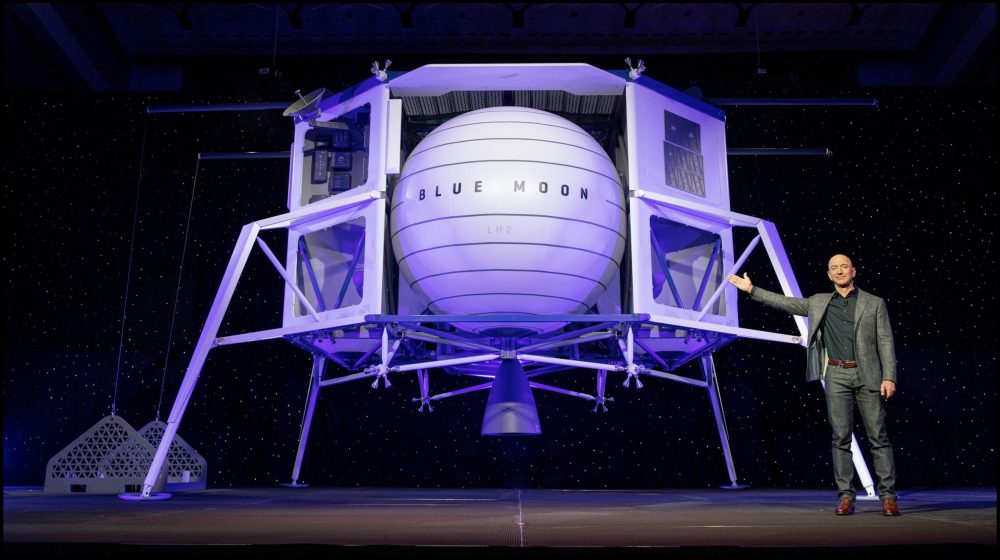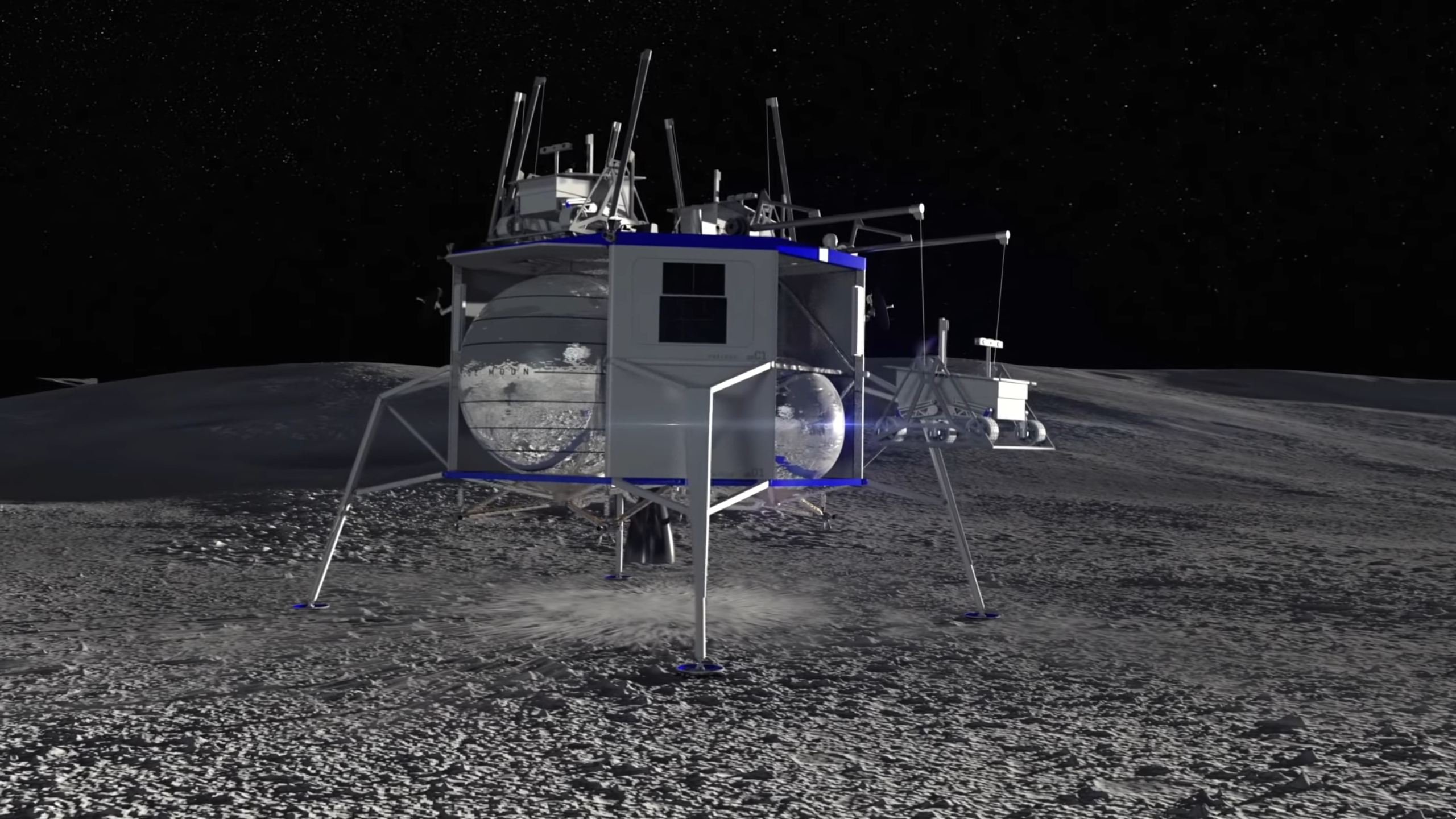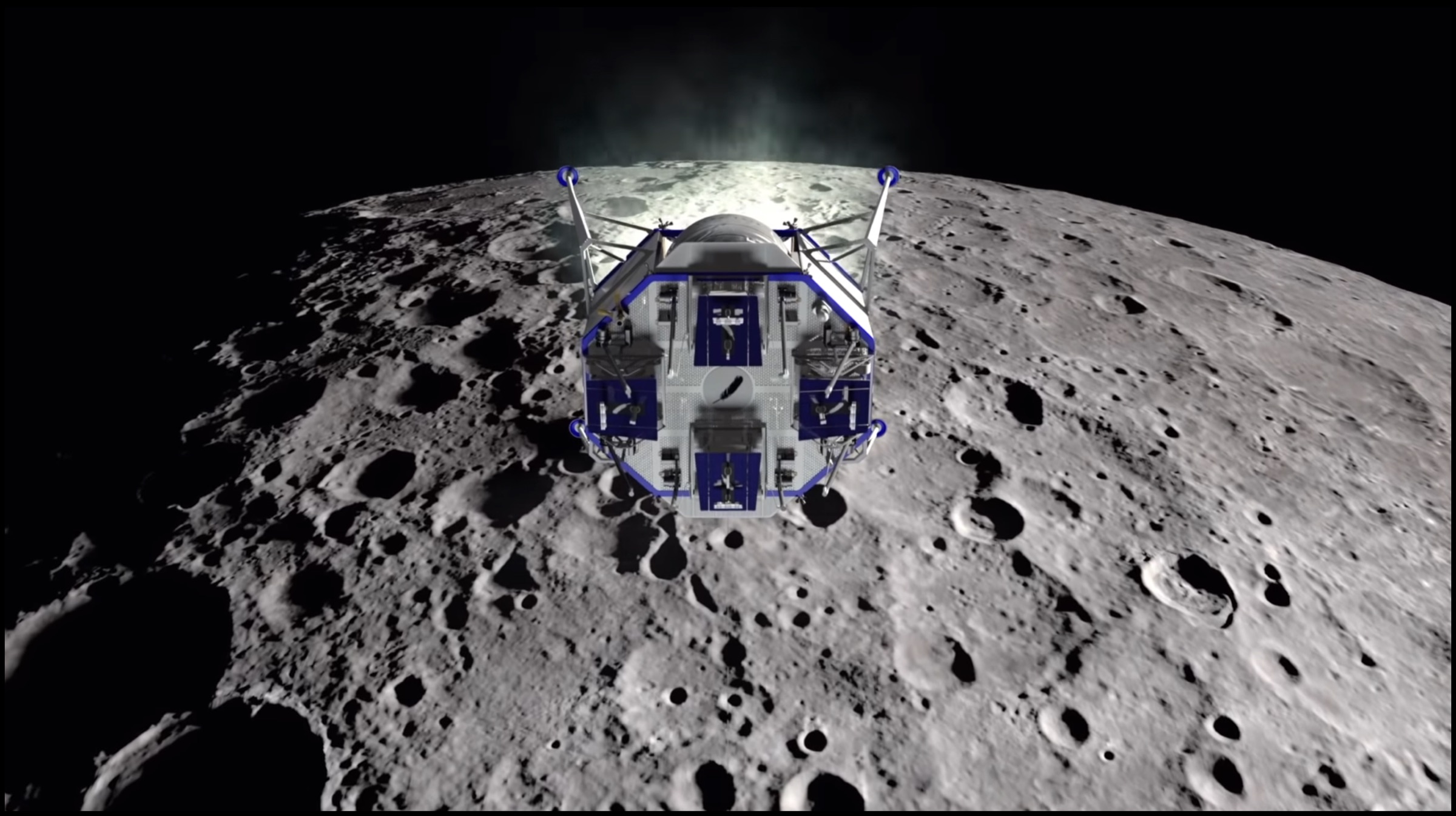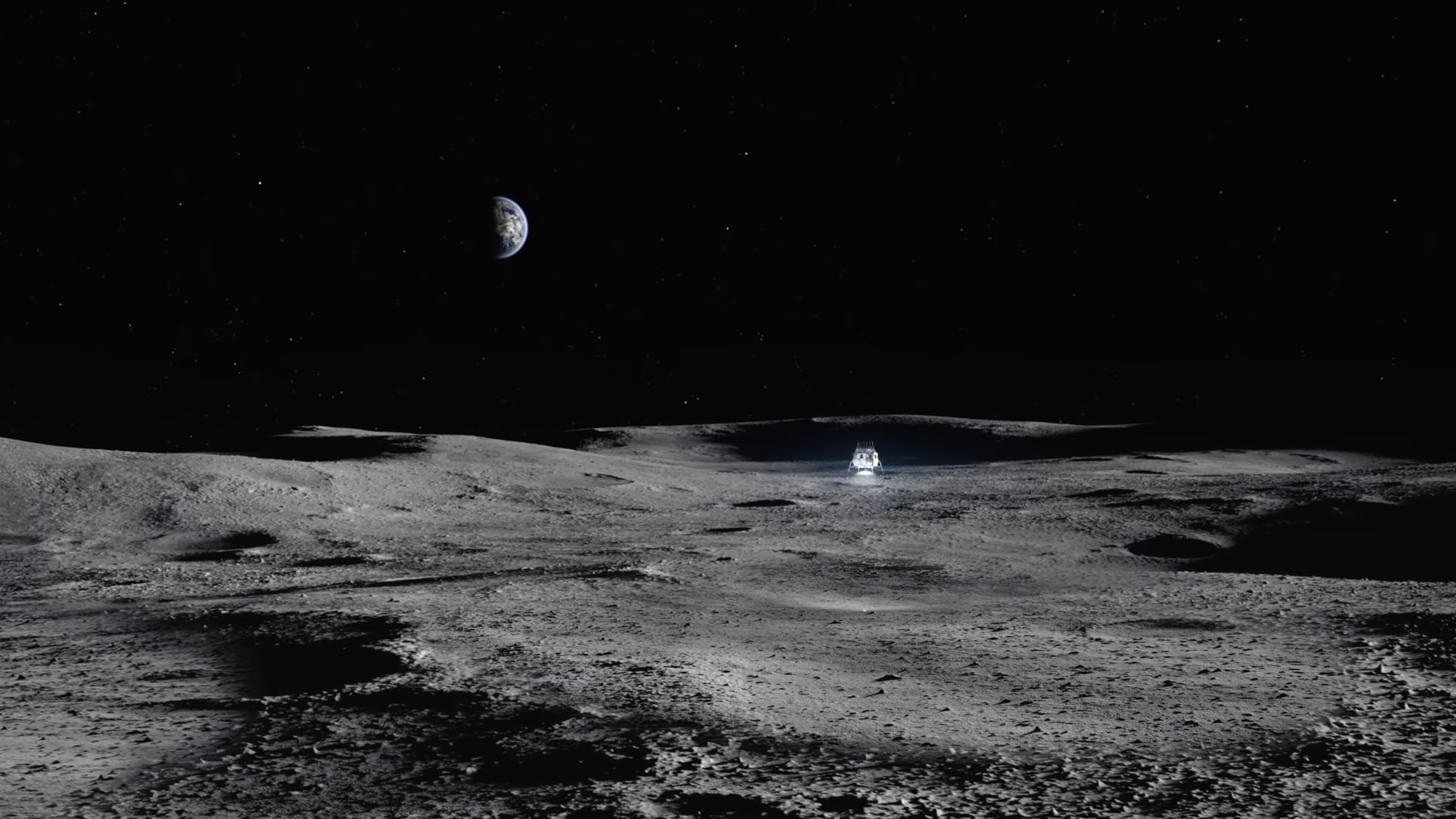Amazon CEO Bezos Wants To Send People To The Moon By 2024

It’s an exciting time to be alive right now. Humans are closer to interplanetary space travel than ever before. Private space organizations including SpaceX are testing out space vehicles such as the Starship and Super Heavy that can safely transport humans to Mars. On the 9th of May 2019, Jeff Bezos unveiled a Lunar Lander that will fulfil the mission of establishing humans on the moon by the year 2024.
 Known as the Blue Moon, the lander will be capable of autonomous space navigation. It will be able to perform soft landings on the surface of the moon while carrying payloads weighing between 3.6 and 6.5 metric tons. This implies that the Blue Moon will be able to carry a total of 4 large rovers simultaneously. This is a small part in a much larger plan to analyze the resources and the surface of the moon.
Known as the Blue Moon, the lander will be capable of autonomous space navigation. It will be able to perform soft landings on the surface of the moon while carrying payloads weighing between 3.6 and 6.5 metric tons. This implies that the Blue Moon will be able to carry a total of 4 large rovers simultaneously. This is a small part in a much larger plan to analyze the resources and the surface of the moon.
Why Do We Need To Send Humans To The Moon?
Today, our founder shared our vision to go to space to benefit Earth. We must return to the Moon—this time to stay. We’re ready to support @NASA in getting there by 2024 with #bluemoon. pic.twitter.com/UqQyMa9Zcn
— Blue Origin (@blueorigin) May 9, 2019
Jeff Bezos has previously talked about his vision to “make space an accessible place for all”. The Amazon CEO believes that the earth cannot accommodate a trillion humans. In an attempt to prevent such a situation, he plans to develop an infrastructure that can sustain human life on the bleak rock that we all call “Moon”. Moreover, Blue Origin owned by Jeff Bezos is already working on a couple of space vehicles designed for short duration flights to the moon’s orbit. But that’s not it. Jeff also wants to harness the resources present on the moon in order to generate future-viable energy.
 The richest man on the planet plans to instate American astronauts on the South Pole of the moon in the next 5 years. The Indian Space Research Organization’s Chandrayaan-1 lunar orbiter collected data that confirmed the presence of more than 1 trillion pounds of ice at the lunar poles. The ice refuses to evaporate because the temperature on the moon’s surface never exceeds -250 degrees Fahrenheit. NASA wants to harness the ice to generate rocket fuel for future missions.
The richest man on the planet plans to instate American astronauts on the South Pole of the moon in the next 5 years. The Indian Space Research Organization’s Chandrayaan-1 lunar orbiter collected data that confirmed the presence of more than 1 trillion pounds of ice at the lunar poles. The ice refuses to evaporate because the temperature on the moon’s surface never exceeds -250 degrees Fahrenheit. NASA wants to harness the ice to generate rocket fuel for future missions.
 Also Read: Google Reveals The Key Details Of Its Upcoming Fuchsia OS
Also Read: Google Reveals The Key Details Of Its Upcoming Fuchsia OS
Amidst the “space race”, one question still looms over our heads. Will privately funded space organizations compete amongst themselves in the future? If so, how will this affect interplanetary travel? Advancements in aerospace will eventually speed up because of the evolution of technology. Nonetheless, the Blue Moon Lander is expected to undergo its first ignition test this summer, which will mark another integral step towards expanding the “space footprint”.






















